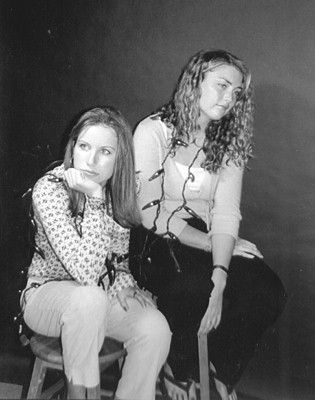All Nonfiction
- Bullying
- Books
- Academic
- Author Interviews
- Celebrity interviews
- College Articles
- College Essays
- Educator of the Year
- Heroes
- Interviews
- Memoir
- Personal Experience
- Sports
- Travel & Culture
All Opinions
- Bullying
- Current Events / Politics
- Discrimination
- Drugs / Alcohol / Smoking
- Entertainment / Celebrities
- Environment
- Love / Relationships
- Movies / Music / TV
- Pop Culture / Trends
- School / College
- Social Issues / Civics
- Spirituality / Religion
- Sports / Hobbies
All Hot Topics
- Bullying
- Community Service
- Environment
- Health
- Letters to the Editor
- Pride & Prejudice
- What Matters
- Back
Summer Guide
- Program Links
- Program Reviews
- Back
College Guide
- College Links
- College Reviews
- College Essays
- College Articles
- Back
Is Human Cloning Already Here?
Boyalife Group, a Chinese cloning company recently announced that their facility will be cloning cattle full time by mid-2016. The company is cloning cattle for consumption to meet the demands of China’s booming middle class. However, the firm executive, Xu Xiaochun stated that he is ready to take it to the next level and clone humans.
But, is society ready for this? That’s is the only thing holding Xiaochun back. It’s frightening to think that in a few years, parents could be able to clone their dead children. Think of all the possibilities. If a famous celebrity died, thousands of people would lose their jobs and a lot of money because of marketing, agents, and film companies. But, what if they could be brought back?
When you clone a human, the only traits that will be the same as the original are appearance. The clone could have a completely different personality. Imagine cloning Michael Jackson and ending up with somebody who can’t dance or sing. There are so many ways human cloning can go wrong.
But, is it right to mess with the circle of life? We share 98% of our DNA with chimpanzees, 90% of our DNA with cats and 50% of our DNA with bananas. There are an unimaginable amount of ways scientists can mess with different species’ DNA. It’s mind-blowing to think of all the different species that could be created.
Human cloning is honestly now more of an ethical issue than a technical issue. There are so many moral issues surrounding human cloning. For example, what are the rights of human clones? Some scientists are intending to make clones solely for the purpose of harvesting their organs. On the black market, a healthy heart is worth at least $2 million. But, if the clone is human, is it right to kill it just to harvest the organs? Some companies will invest in cloning as a way of having a low cost labor force. Will clones be treated as humans? How will society react? Will clones be forced to wear a certain identification label so the public knows they’re a clone? Are clones going to be considered human?
Human cloning benefits the rich more than the poor. For $1,000, a South Korean company, Sooam Biotech, can clone your dead pet. So far, Sooam has created clones of 600 dead pets.
Human clones could deplete ethnic diversity because only the groups with money and the means will be able to afford it. Not to mention that some religious groups will be angry because it challenges their beliefs.
Because how far are people willing to go? What is too far? We desire to go far yet we fear going too far. Will our curiosity lead to our end?
Human cloning is one of the biggest ethical dilemmas of the century. The truth is that the technology is already here. Scientists are merely waiting for the world to approve it.

Similar Articles
JOIN THE DISCUSSION
This article has 0 comments.
